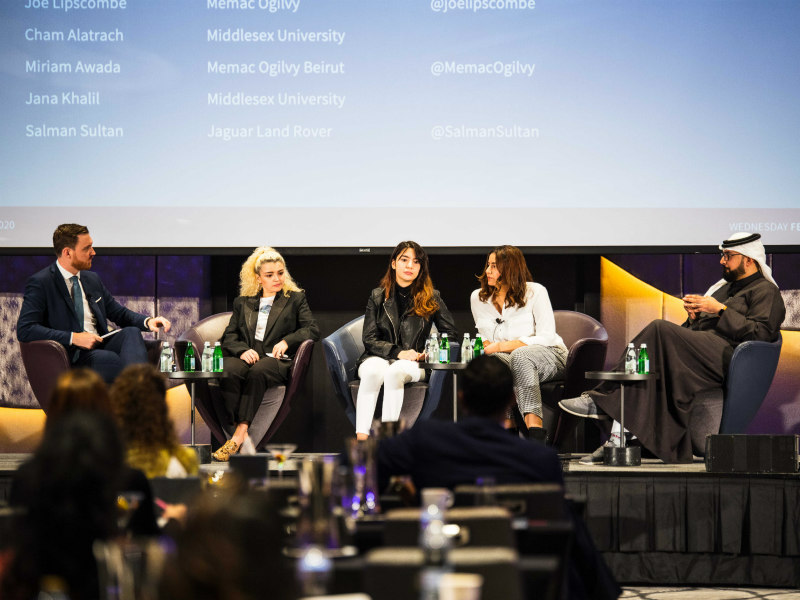Arun Sudhaman 05 Feb 2020 // 12:42PM GMT

DUBAI — Middle Eastern youth are "switched-on, informed and opinionated", and brands ignore them at their own peril, heard delegates at PRovoke MENA today in Dubai.
With 65% of the region's population under the age of 30, brands are being forced to reckon with a new set of expectations, and not all of them are equipped for such a transformative shift. "For brands in the Middle East it's impossible to ignore the youth," said Jaguar Land Rover PR and social media manager Salman Sultan. "For any brand to survive they need to think about their future customers. We need to invest in them first. Do not underestimate the youth, especially in the region. They are switched on, they are informed, they are opinionated."
Sultan made the comments on a panel moderated by Memac Ogilvy PR and influence director Joe Lipscombe, which featured two students and a Lebanese youth activist. The youth voices reflect a general expectation that brands work to solve social issues for the long term.
"Because we are such an informed generation — information enables us to be activists, and we expect brands to be our partners in that purpose," said Memac Ogilvy Beirut senior account manager Miriam Awada. "We expect brands to be honest. We expect that they are partners with us."
However, there a risks for brands that view the youth market as a convenient short-term campaign objective, a mindset that raises questions about their ulterior motives. As Lipscombe asked, do brands roll out Ramadan campaigns because they are trying to make a "quick buck"?
“It’s nice when brands are trying to give back to society, but we are all responsible, so why should we thank them for that?" asked Middlesex University student Jana Khalil. "The youth want to build a better community, but it shouldn’t be a strategy for brands to connect with us."
Instead, brands should not be afraid of making small steps as part of a longer-term effort. “We want to see brands making more of an impact but we can’t expect a global brand to be 100% ethical overnight," said Middlesex University student Cham Alatrach. "Small strides do matter. That way you can see the process and what goes behind it. The youth want to see a change, and that doesn't happen overnight."
And while brand missteps may be punished harshly, particularly online, the possibility of redemption always exists. "We're about forgiveness and we're about change," said Alatrach.
All of which points to an environment where youth audiences are reshaping the traditional relationship between brands and the public. "The youth have changed," said Sultan. "For them, it's about the relationships they build with brands. They now exactly what they want. If the brand values meet their own personal values or not. Listening is extremely important. Listen for the sake of understanding not to give a reply."


































.jpg)

















